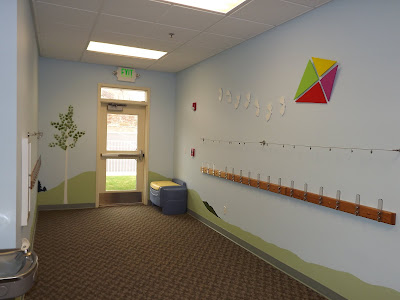I visited a local radio newstalk station early this morning to talk about children's books. Obviously, it's a subject near and dear to my heart, and the hosts were a delight to talk to. I actually enjoy radio, although it's always a surprise to remember that you don't know who might be eavesdropping on the conversation :).

Perhaps naturally, the question came up: "What advice would you offer to someone that wants to write for children?" The way I answer this question has probably changed over the years, but today, this is a short glimpse into what I think writers need to keep in mind when writing for children.
1. Hang out with children.
Children are fun. Children are funny. And children say some the most thought-provoking, imagination-firing, laugh-out-loud, heart-squeezing things sometimes. So go find your audience! Find out what they are reading, what they like about it, don't like about it, things they care about, things they hate - and then take it home and stir it into the pot of your own experiences, passions and irks and see what starts bubbling to the top. It may be something amazing! It may be something that totally stinks! But either way you'll have something very unique.
2. Hone your craft.
Writing for children is one of the most exacting and challenging genres you could ever want to jump into. Partly because of brevity (every word has to count); partly because it can get kind of crowded (a lot of people take the approach "Write a children's story? How hard can that be?"); and partly because publishers are having to be more selective about the number of books they publish, the type of story they can accommodate and the size of the piles they have resources to dig through when facing a landslide of submissions.
But it's also one of the most exciting areas of writing to participate in. So practice, practice, practice. Learn the details of manuscript formatting, picture book construction, page layouts, blurbs and jacket copy (even if you aren't the artist). And learn about the tips and tricks of language, not so you can shoehorn them in at every turn but so that you have all the tools you need at your disposal when it's time to tell your story.
3. Know the business.
Writing for children, just like any other genre, is a business. So be a professional. You really have no excuses not to be - the list of resources available is endless! Get in and get grubby among the details of submission and contract terms and rights and finances and tax exemptions and small business claims. You don't have to be an expert in any of these areas but you have to at least become familiar with the terms. Think about school visits, or social media platforms, or e-books. Know your own strengths and then use them. And always, always put your best work forward.
Even if you don't write for children, I think this advice holds true (substitute "Trekkies", "sports fans", etc for children depending on your area of interest). You need to have a grasp of who your audience actually is, you need to present the best possible writing you can offer, and you need to know the business. And tip #4?
Even on the radio, you might want to think about a little lipstick.
So there it is. Now let's get to work!































